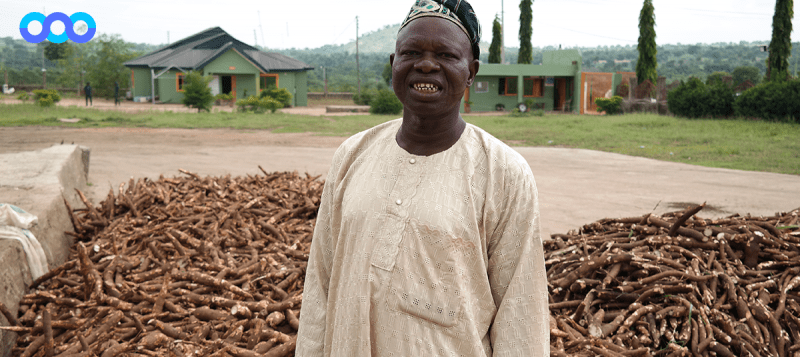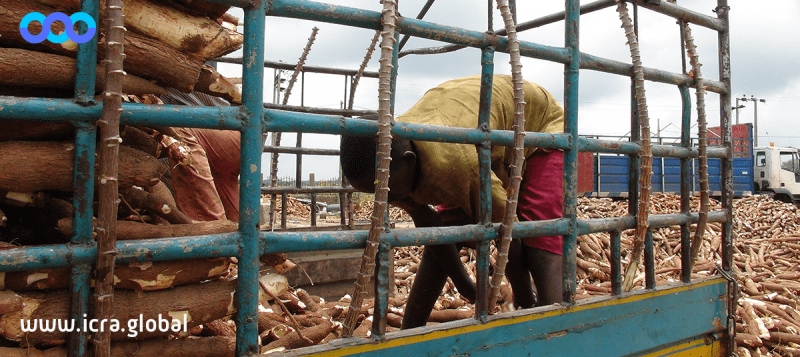
A big firm and small farmers on the journey towards a fair deal
Psaltry Ltd, is a cassava starch processing company supplying Nigerian Breweries, that intends to secure its supply of raw material from smallholder farmers through organisational support. This story highlights the reflections of the author on how strong an apex farmers’ organisation has become since they have been coached in soft skills. The farmers have become so empowered that they can now embark on negotiations with the Psaltry Ltd processing company on their own, and without the support of the partnership facilitator.
“We just agreed to 18,000 naira (€50) per tonne, Nasiru Oladokun said. “and this time excluding transportation costs to Psaltry.”
A victory for the cassava farmers.
Of course everyone wanted to make sure that Psaltry could stay in business as well. This was another step on the journey toward fairness. The stakeholders contacted Nasiru Oladokun as the chairman of Psaltry’s out-growers association, an apex body of 33 farmers’ groups with about 1,300 members. The group had complained that Psaltry set prices of cassava tubers on their own, and this set price was not favourable to the farmers. These problems arised because the farmers were not organised into groups, had poor access to information and low productivity.
Nigerian Breweries is the largest brewing company in Nigeria that markets well-known brands of beers, malt drinks, and soft drinks. The company is interested in strengthening and expanding its local business activities particularly in the local procurement of cassava-based products. Psaltry is a medium-sized agribusiness company that works to supply high-quality cassava starch to food and beverage companies. The company also produces cassava on its own farmland but this is far below the company’s yearly 100,000 metric tonnes needed.


Price negotiation, a continuous challenge
To compensate for the gap, the company runs a comprehensive outgrower scheme with smallholder cassava farmers. It also provides incentives such as agro-inputs on credit (stems, agrochemicals), through linkages with banks and clear contractual arrangements with farmers (at annually set prices). Despite the incentives, price negotiation has been a challenge in the continued relationship between the company and the farmers. Yemisi, Psaltry’s director explained that she had a yearly contract with buyers and could therefore only negotiate prices once a year.
How to bring both parties towards a win-win and sustainable business?
This question became more important as new buyers came into the picture, making competition for cassava tubers tougher than in past years. To help the farmers address these issues, iCRA’s 2SCALE’s trainers and agribusiness coaches facilitated workshops on farmers’ group formation and registration, farm operation planning, use of improved farm inputs, access to finance strategies and negotiation skills. After capacity-strengthening exercises, the farmers gained better access to information and market trends, became better organised and now meet regularly. And finally, their cassava yields rose from 9 metric tonnes per hectare in 2014 to 14 metric tonnes per hectare in 2016. Our months of hard work were yielding results. The farmers’ association is getting to understand the business dynamics within the cassava value chain.
For these cassava farmers, the journey to a fair deal is beginning, and they can ensure that Psaltry never runs out of good quality starch.

Recent Comments